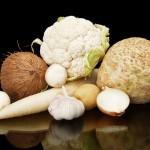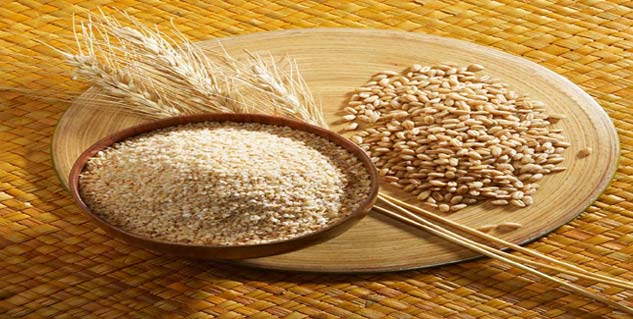Tea Antioxidant Myths And Facts
A tea antioxidant is widely known to be an excellent source for antioxidant nutrition. There is a debate regarding the effects of antioxidants in the human body and what teas provide the most nutrition. In order to understand the true benefits of tea antioxidants, you should first understand that your body uses antioxidants to protect and heal your cells from the free radicals they produce when your body absorbs oxygen. While it keeps you alive, oxygen also causes cell oxidation, which leaves you more vulnerable to:
- degenerative diseases associated with aging
- Alzheimer's disease
- cancer
This is why many people believe antioxidants create an anti aging mechanism within your body. There are a lot of myths about tea antioxidants. Below are some truths to help you enhance your diet and cut out the confusion.
Myth: Tea Antioxidants Will Save Your Life
Fact: Antioxidants Effect Your Body In Ways That Can Result In Longevity
While antioxidants do help protect and heal your cells, they need to be combined with a healthy diet and exercise to keep your cells' exposure to free radicals at a minimum in the first place. Drinking tea is one of the easiest ways to consume a good amount of antioxidants without having to consume many calories. When your body is regularly receiving good amounts of antioxidants, you are doing your best to protect yourself from future cell damage. Depending on your health history, healthy cells can lead to a healthier (and possibly longer!) life.
Myth: All Teas Contain The Same Amount Of Antioxidants
Fact: Almost All Teas Are An Extremely Rich Source Of Antioxidants
Oolong tea, black tea, and green tea all come from the same source, an antioxidant rich plant called Camellia sinensis. Their main difference lies in the way they are processed, not in the amount of antioxidants they contain. Oolong and black teas are processed by fermenting and crushing, while green tea is wilted and steamed. None of these processes greatly reduce the amount of antioxidants contained in the original plant. There does seem to still be a bit of debate in our country regarding the benefits of antioxidant tea. To clear this up for your own peace of mind, look at our neighbors to the East. Asian cultures, in which tea drinking is much more prevalent, tend to report less occurrences of:
- cardiovascular disease
- cancer
- liver disease
Thus, while certain studies may reflect certain contrary results, it seems rather safe to assume that the health and longevity of millions of Asian people is not just a coincidence. In addition to healthy diets and regular exercise, regular tea drinking truly puts your health at an advantage in our polluted world.
Myth: Fruits And Vegetables Are A Better Source of Antioxidants Than Tea
Fact: Tea Has Approximately Ten Times The Amount Of Antioxidants Found In Fruits And Vegetables
Amazing but true, you will consume many more antioxidants from a simple cup of tea than from a serving of fruits or vegetables. This is extremely helpful when you are trying to keep your caloric intake down. While fruits and vegetables are an important part of a healthy weight loss plan, fruits contain sugars that can add up quickly, and certain vegetables contain starches which your body processes into sugar.
A cup of unsweetened tea is a zero calorie way to enrich your meals and snacks with antioxidants. Fruits and vegetables are still an important part of your nutrition plan - do not even think about replacing fruits and vegetables with tea, as you will be depriving your body of essential nutrients, and you will most likely be ravenously hungry (which can result in unhealthy choices).
It is amazing that a simple, natural beverage can provide such an outstanding amount of antioxidants for your body. Incorporating unsweetened tea into your diet can be difficult if you are accustomed to drinking sweet tea or soda. A delicious way to add flavor to your tea is by adding a quarter cup of fresh fruit juice or a low calorie sweetener. Honey is also a great way to sweeten hot tea, but you need to monitor your serving of honey, as it is very high in sugar. When you add other flavors to your tea, it will be much easier for you to start choosing unsweetened tea at meals instead of sugary artificial beverages. Remember you are drinking for your life - salud!
-
The Papaya-Pepper Miracle Combo to Lose Weight
If you are trying to lose weight and are only living with lost hopes w
-
Can Liposuction Really Give You The Body You Dream Of?
Liposuction goes by many names: suction lipectomy, lipoplasty, fat mod
-
How Does Height And Weight Affect Your Term Life Insurance Options?
What if you are applying for term life insurance and you have no healt
-
Rise & Shine! Morning Light Could Help You Lose Weight
-
Fat Loss Owners Manual
Turbulence Training is a structured routine that I came up with that a
-
5 Simple and Universal Principles – Simply Eat
Weight loss secrets are only useful if you understand what is being sa
- DON'T MISS
- Best Way to Lose Weight - Our Metabolism
- 8 Steps to Losing Weight the Healthy Way
- Exercise Your Way to Weight Loss and Health...You CAN Do it!
- What to Look for in an Effective Weight Loss Program
- Lose Weight This Weekend
- Does Weight Loss Hypnosis Work?
- How To Get Skinny Fast - My Favorite Asian Tricks
- Different Types of Adult Obesity and Herbal Drugs
- Revealed: The Critical Weight Loss Industry Facts You Should Know
- The Cause Of Bad Breath On Low Carb Diets




